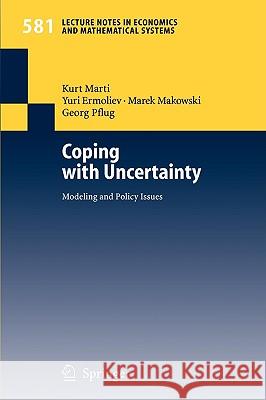Coping with Uncertainty: Modeling and Policy Issues » książka
Coping with Uncertainty: Modeling and Policy Issues
ISBN-13: 9783540352587 / Angielski / Miękka / 2006 / 330 str.
Ongoing global changes bring fundamentally new scientific problems requiring
new concepts and tools. A key issue concerns a vast variety of practically
irreducible uncertainties, which challenge our traditional models and require
new concepts and analytical tools. The uncertainty critically dominates, e.g.,
the climate change debates. In short, the dilemma is concerned with enormous
costs vs. massive uncertainties of potential extreme impacts.
Traditional scientific approaches usually rely on real observations and
experiments. Yet no sufficient observations exist for new problems, and "pure"
experiments and learning by doing may be very expensive, dangerous, or
simply impossible. In addition, available historical observations are contaminated
by actions, policies. The complexity of new problems does not allow to achieve
enough certainty by increasing the resolution of models or by bringing in more links.
Hence, new tools for modeling and management of uncertainty are needed, as given
in this book which was prepared for an interdisciplinary audience, and addresses open
problems, limitations of known approaches, novel methods and techniques, or lessons
from the applications of various approaches. Thus, the book contributes to a better
understanding between practitioners dealing with the management of uncertainty, and
scientists working on either corresponding modeling approaches that can be applied for
improving understanding or management of uncertainty.











